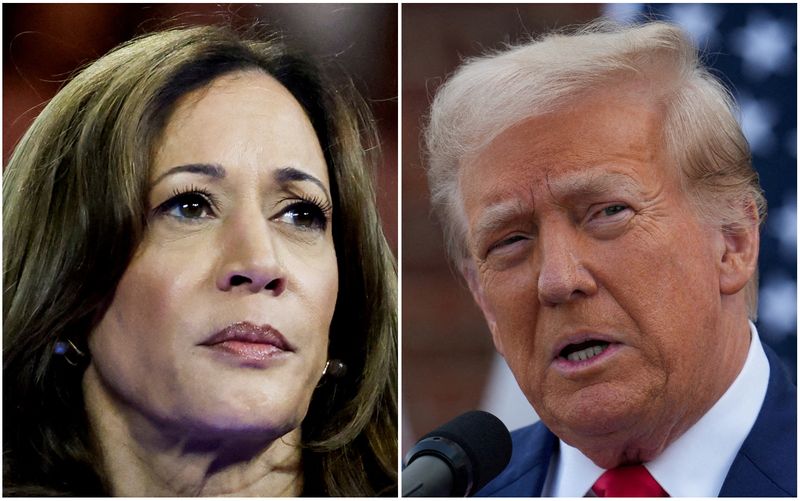These four US election scenarios are “very much on the table”, according to HSBC


Investing.com — With only weeks left before the all-important US presidential election on Nov. 5, the battle between Kamala Harris and Donald Trump in key swing states is all but tied, according to a new poll from The Wall Street Journal.
Democratic candidate Harris has a narrow lead in the states of Arizona, Michigan, Wisconsin, and Georgia on ballots that include independent and third-party candidates, the poll found. Trump, Harris’ Republican rival, has slim edge in Nevada, North Carolina, and Pennsylvania.
But neither of the hopefuls for the White House have a lead in these battleground states that is greater than the poll’s margin of error, the WSJ said on Friday. The poll, as well as other recent similar surveys, all suggest that the race remains very tight.
Analysts at HSBC are now predicting four potential outcomes of the vote, which includes not just the presidential contest, but other races that will decide the political make-up of the US Congress.
In the first scenario, Trump, the former president, wins a second term in office and his Republican party gains control of both the House and the Senate. Another possibility the HSBC analysts foresee is a Trump victory, albeit without Republicans winning a clean sweep of Congress.
The scenarios are similar for Harris, the analysts said. The current vice president could win the vote while the Democrats take control of Congress, or she could emerge victorious and preside over a divided legislature.
For markets, a Republican clean sweep of Congress would likely lead bond traders to anticipate a more hawkish Federal Reserve interest rate outlook, while a legislature under Democratic control could cause a further bullish steepening in the yield curve, the HSBC analysts said.
“Republican policies could support further US equity outperformance; escalation in trade tensions could drag on the rest of the world. A Democratic clean sweep could mean corporate tax hikes and strict antitrust laws, a possible drag on US equities,” the analysts added.
Crucially, they noted that neither Trump nor Harris will be likely be able to pass much legislation if Congress is split between the Republicans and the Democrats. However, some policy areas could still be impacted, they said.
“Policies that don’t require new legislation could potentially take effect more quickly (some possible areas include tariffs, immigration, and regulation) and could in turn have implications for growth, inflation, and interest rates as early as 2025,” the HSBC analysts said in a note to clients this week.
“For policy areas that require new legislation (taxes and other areas of fiscal policy), it will likely take some time for the Congress to debate and negotiate on changes, regardless of the election outcome.”





